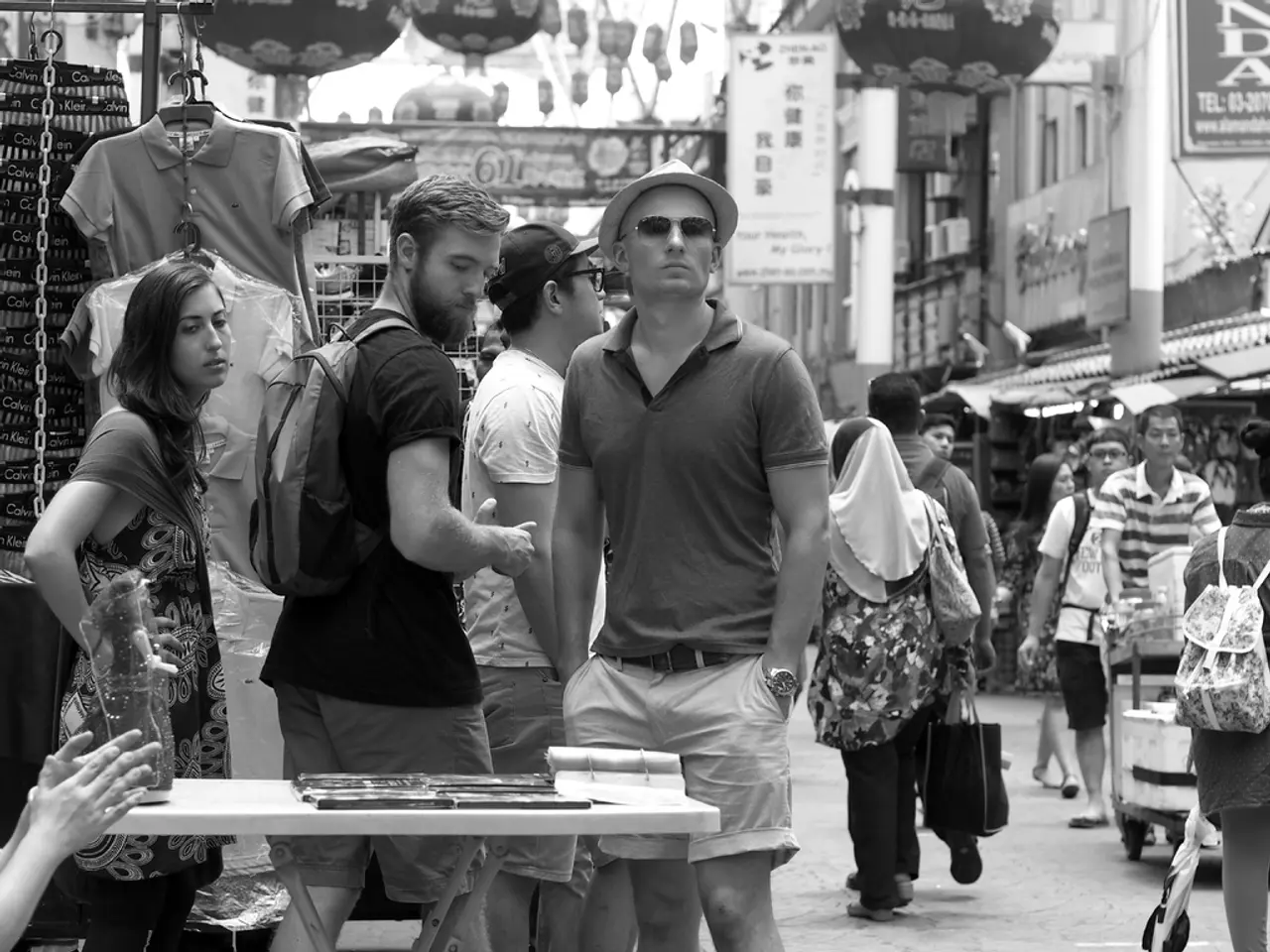Vast number of illicit, unauthorized markets in Dhaka South estimated to cause immense financial losses in tax revenue.
In the bustling heart of Dhaka South, a drive towards regulation and compliance is underway. The city corporation is taking steps to streamline the establishment, licensing, and operation of private markets, aiming to ensure public health, safety, and proper urban planning.
Over 100 illegal private markets, excluding supermarkets and shopping malls, have been operating across Dhaka South City Corporation's (DSCC) 75 wards. These unlicensed markets are estimated to be causing a significant loss of more than Tk50 crore in potential revenue annually.
According to the 2022 regulations, private market owners must obtain a license from the South City Estate Department, renew it annually, comply with hygiene, safety, and zoning rules, and allow inspections by Dhaka South authorities. An application fee of Tk500 is required, with additional fees based on the market's location.
If a private market occupies 500 square metres beside a main road, the annual license fee is Tk1,07,500. However, compliance with the policy has been minimal, with only 10 out of the 15 private markets that applied for registration in 2022 receiving licenses. Last year, only two of the licensed private markets renewed their licenses, generating only Tk30 lakh in revenue.
The drives to shut down illegal markets will begin in phases. Dhaka South City Chief Estate Officer Hasiba Khan stated that the process will start with formal notices and inspections, followed by sealing or closure of unregistered markets, and prosecution where necessary.
Unlicensed markets not only hinder revenue generation but also complicate traffic management and urban planning, as they often spring up in unauthorized locations. They can also undermine public health and safety standards due to lack of proper waste disposal systems, fire safety measures, or structural stability.
The policy is not just about revenue; it's about ensuring public health, safety, and proper urban planning. Officials and urban experts argue that regulation is crucial for maintaining a clean, safe, and orderly city.
In an effort to curb the operation of unlicensed markets, Dhaka South issued a fresh public notice on 2 September, warning that no market may operate without a valid license. Violators of the city corporation act can face fines, closure, or prosecution.
One legal market under DSCC in the Hatirpool area, Hatirpool Bazar, stands as a testament to the benefits of regulation. The market, which operates under the watchful eye of the city corporation, ensures proper waste disposal, adherence to safety measures, and contributes to the city's revenue.
As the drives to shut down illegal markets continue, Dhaka South is moving towards a more regulated and orderly cityscape, ensuring a safer and healthier environment for its citizens.
Read also:
- Duty on cotton imported into India remains unchanged, as U.S. tariffs escalate to their most severe levels yet
- Steak 'n Shake CEO's supposed poor leadership criticism sparks retaliation from Cracker Barrel, accusing him of self-interest
- Germans face billion-dollar infrastructure crisis on federal highways, as construction projects hang in the balance
- President von der Leyen's address at the Fourth Renewable Hydrogen Summit, delivered remotely







